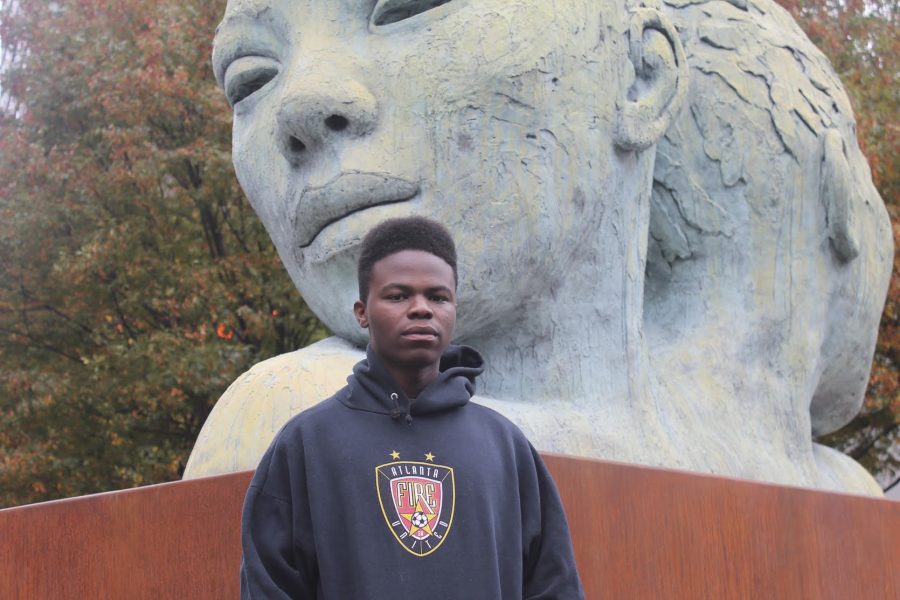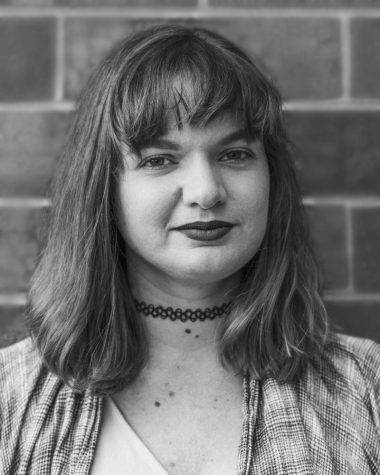Q&A: Daye Jack Is Hip-Hop’s Next Big Thing
CAS alum Daye Jack was recently signed by music legend Max Martin and has released his first full-length album “Surf the Web.”
October 24, 2016
There are endless ways to apply a computer science degree, but kick-starting your music career and getting signed by the venerable Max Martin (who’s produced music for names like Taylor Swift and Ariana Grande) is surely one of the least common. Still, that’s exactly where former NYU student Daye Jack ended up. After releasing his debut EP while he was still a student in the College of Arts and Sciences computer science program, Jack’s fame quickly grew. Now he’s been signed by Martin and has just released his full-length album “Surf the Web” last week. Born in Nigeria, raised in Atlanta, former student at NYU and now a familiar on the scene in Los Angeles, Jack’s on the fast track to stardom. Recently, he sat down with WSN to talk about his time at NYU and his experiences making his new album.
WSN: What do you think were the most valuable parts to you of being a student at NYU?
Daye Jack: Before I went to NYU, I was living in the suburbs of Atlanta, in the suburbs of Gwinnett county. It’s like every other suburb, pretty much the same thing — pretty sheltered. Moving to NYU, for me, was moving to New York, the big city, and being around the energy where everyone’s always getting something done. People are fast-paced, so when you’re not working, you feel like you’re behind. You constantly have to be on your grind. And I also moved to a dorm where a lot of my friends and the people I got to meet were film students and other creatives. So my first video, “Hello World,” off my first tape [also called “Hello World”] was just me and three other kids in my dorm. We rented out a room and we got some lights, a camera, rented some stuff and just shot the whole thing.
WSN: What’s the most important lesson you’ve learned while you were at NYU, either as a musician or as a person?
DJ: I think the most important lesson I learned was probably that you don’t have to fit into a box. I think college for me was coming-of-age thing, where before that, especially being from the south and being from an area that was more close-minded, I almost thought that I had to fit into other
people’s boxes.
WSN: Is there anything that, from your experience at the school, you’d like to see changed about it?
DJ: I felt like having more hubs that combine the students. I think we kind of — at least with my friend group —- we kind of made that happen for ourselves. Like, you can have an art kid who’s really good at art, and another kid who does film, and another kid who does music, where like … if there was an institutional thing that helped combine those kids, people could make full-fledged projects with them. It’s so easy — you’re coming to NYU to shoot film? Okay, let’s shoot a music video. Just those little things that reach beyond and combine kids. Because at the end of the day, when you finish your major, and enter the real world, that’s what you’re going to be doing. You’re not going to be working with just film kids or just music kids. You’re going to be trying to reach out to the kid who makes music, and then the art kid wants to make cover art for a song. Everything’s interconnected. I think the school environment should be interconnected, too.
WSN: What are some of the coolest things you’ve learned since you got to start working with Max Martin and his crew?
DJ: A lot. I got to move from New York to L.A., and I’ve been there for the past year and a half. You know, being in Max’s camp, with a bunch of songwriters and producers who are working on these big-level projects, whether it’s The Weeknd or Taylor Swift, it’s cool to see what it really takes on the songwriting side. Amazing ideas and amazing concepts — how to shape it into a song where someone else can listen to it and see, word for word, clearly what you’re thinking. It’s almost been a songwriting bootcamp. I’ve just been getting better at writing songs and expressing ideas more clearly. And from there, my previous projects I made predominantly in New York before anyone in L.A., like Max … that other stuff before I met them was just me and my headphones, electronic, glitched-out, trippy. But when I moved out there to L.A., it was me trying to tell the same stories, but in a more pop-oriented way.
WSN: Have you had fun with the pop format?
DJ: It’s really fun. Because we all have preconceptions of what’s pop, and at the end of the day, if you put your personality into it, it’s a tool. It’s a tool to make sure your music can reach as many people as possible, [to make sure] your message can touch as many people as possible. It’s not really a genre to me; it’s more like a tool.
This interview has been edited for length and clarity.
Email Hailey Nuthals at [email protected].


























































































































































